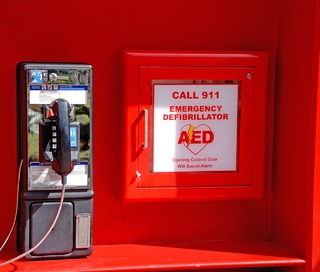Get Ready for the Kids: Why You Should Get First Aid and CPR Certified

As #summer draws to a close and the new school year approaches, #parents, #teachers, and #daycare providers are busy preparing for the return of #students. Amidst the hustle and bustle of getting ready for the upcoming school year, one crucial preparation should not be overlooked: obtaining First Aid and #CPR certification. These lifesaving skills are essential for anyone responsible for the #safety and well-being of children. ChildCareEd is here to offer convenient and effective solutions, with special August discounts to make this important training even more accessible.
The Importance of First Aid and CPR Certification
Emergencies can happen at any time, and being prepared can make the difference between life and death. Whether it's a minor scrape on the playground or a serious medical #emergency, knowing how to respond appropriately is critical. First Aid and CPR training equips individuals with the knowledge and skills to handle a wide range of emergencies, from administering basic wound care to performing life-saving chest compressions.
For teachers, parents, and daycare providers, this training is particularly vital. Children are naturally curious and active, which increases their risk of accidents and injuries. Having First Aid and CPR certification ensures that you are prepared to respond quickly and effectively in an emergency, providing the best possible care until professional help arrives.
Why Choose ChildCareEd for Your Training?
At ChildCareEd, we understand the unique needs of teachers, parents, and daycare providers. Our courses are designed to be convenient, comprehensive, and tailored to the specific challenges of caring for children. We offer both in-person and blended learning options, so you can choose the format that best fits your schedule and learning style.
-
In-Person Training: Our in-person courses provide hands-on practice with experienced instructors who can answer your questions and provide immediate feedback. This format is ideal for those who learn best through direct interaction and practice. Upcoming Classes - ChildCareEd
-
Blended Learning: Our blended courses combine online learning with in-person skills sessions. This flexible option allows you to complete the coursework at your own pace, followed by an in-person session to practice and demonstrate your skills. It's perfect for busy professionals and parents who need the convenience of online learning without sacrificing the benefits of hands-on practice. Upcoming Classes - ChildCareEd
Special August Discounts
To make it even easier to get certified before the school year starts, ChildCareEd is offering special August discounts. Save $20 on in-person training and $15 on blended learning courses. These discounts make it more affordable than ever to gain the skills and confidence you need to respond to emergencies effectively.
Real-Life Scenarios: Why Certification Matters
Consider these real-life scenarios:
-
Playground Accident: During recess, a child falls off the monkey bars and hits their head. They are unconscious and not breathing. A teacher with CPR training immediately begins chest compressions and rescue breaths, keeping the child's blood flowing and providing oxygen until paramedics arrive. This quick response can be the difference between life and death.
-
Choking Incident: At a daycare, a #toddler begins to choke on a piece of food during snack time. A caregiver trained in First Aid recognizes the signs of choking and performs the Heimlich maneuver, dislodging the object and allowing the child to breathe again. Without this intervention, the child could have suffered serious injury or worse.
-
Allergic Reaction: A parent on a school field trip notices their child suddenly breaking out in hives and struggling to breathe after eating a snack. Recognizing the signs of a severe allergic reaction, the parent administers an epinephrine auto-injector and calls for emergency medical help. Their quick actions stabilize the child's condition until professionals take over.
These scenarios illustrate just a few of the many ways First Aid and CPR training can make a critical difference in emergencies. Being prepared and confident in your ability to respond can save lives and prevent further harm.
What You'll Learn in First Aid and CPR Training
ChildCareEd's courses cover a comprehensive range of topics to ensure you are well-prepared for any situation. Key components of the training include:
-
Basic First Aid: Learn how to assess and respond to a variety of injuries and illnesses, including cuts, bruises, burns, sprains, fractures, and more. You'll also learn how to manage bleeding, shock, and other medical emergencies.
-
CPR and AED: Gain the skills to perform CPR on infants, children, and adults, as well as how to use an Automated External Defibrillator (AED). These skills are crucial for responding to cardiac emergencies.
-
Choking Relief: Learn how to recognize and respond to choking in infants, children, and adults using techniques such as back blows, abdominal thrusts, and chest compressions.
-
Emergency Response: Understand how to assess emergency situations, prioritize care, and communicate effectively with emergency medical services.
-
Preventive Care: Learn strategies to prevent injuries and illnesses, including creating safe environments and understanding common hazards.
How to Get Started
Getting started with your First Aid and CPR training at ChildCareEd is easy. Visit our website Upcoming Classes - ChildCareEd to find the course that best fits your needs. Take advantage of our August specials to save on your training and ensure you're ready to provide the best care possible for the children in your life.
Conclusion
As we prepare for the new school year, let's make safety a top priority. First Aid and CPR certification is a valuable investment in the well-being of the children you care for. With ChildCareEd's convenient in-person and blended learning options, and our special August discounts, there's no better time to get certified. Equip yourself with the skills and confidence to respond to emergencies and make a difference when it matters most. Sign up for your First Aid and CPR training today and get ready for the kids! Upcoming Classes - ChildCareEd